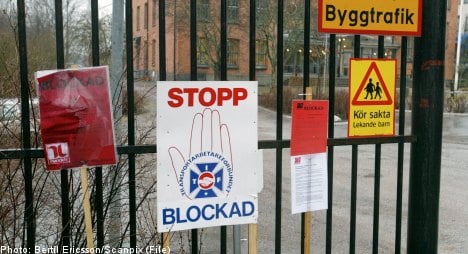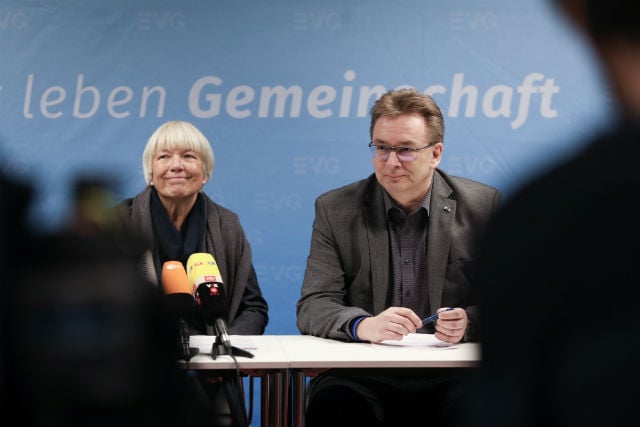The sum, to be paid to the Laval construction company by the Byggnads builders union and the Swedish Electricians’ Union, includes 2 million kronor in court costs incurred by the company, as well as 550,000 kronor plus interest in what the court called “general damages” for carrying out illegal labour conflict measures.
Even though Byggnads didn’t agree with the judgment, the organization plans to abide by the ruling and pay the compensation.
“We abide by the legal outcomes we receive and that’s something we’ve always done. We want everything in order in the labour market and that means following the laws and rules,” Byggnads chair Hans Tilly told the TT news agency.
He believes trade unions must coordinate better, both in Sweden and in Europe.
“We’ve relied on the Swedish model and on solving conflicts between parties. But employers have decided to take legal action instead of negotiate. They put things on a new track,” he said.
The electric workers’ union, which joined the blockade in solidarity with Byggnads, believes the ruling will make it harder for Swedish unions to demand collective wage agreements for foreign workers.
A subsidiary to Laval was hit by a union-ordered blockade in November 2004 after negotiations on a collective wage agreement with Byggnads failed.
The company eventually withdrew from the school-renovation project in Vaxholm outside of Stockholm and the contract it had with the municipality was torn up. Laval’s Swedish subsidiary later went bankrupt.
The Labour Court rejected Laval’s request in 2004 to have the court order the unions to terminate the blockade.
In April 2005, the court found that it could not rule on the case until it received clarification from the European Court of Justice regarding EU and Swedish labour laws.
The Latvian government protested against the Swedish position in the case, viewing the blockade as a violation of EU rules protecting the free movement of labour among EU member states.
In December 2007, the European court ruled that the blockade broke EU rules and that Byggnads went too far in ordering a blockade of the Vaxholm work site.
According to the European Court, Byggnads had demanded more than what was allowed under the 1996 EU directive governing posting of workers in the framework of the provision of services.
While the Swedish court has now ruled that the trade unions are required to compensate Laval for general damages and court costs, it rejected the Latvian builder’s demand that it be compensated for economic damages.
The ruling wasn’t unanimous, with three of the seven judges dissenting. One of the three believed the damage award should have been lower, while two others didn’t think Laval should be compensated at all.



 Please whitelist us to continue reading.
Please whitelist us to continue reading.
Member comments